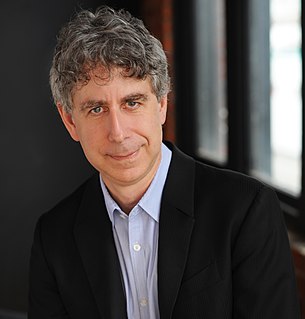A Quote by Costa-Gavras
Especially now, the immigrant problem is very dramatic around the world. Because we don't know what to do with them. They're in economic crisis, and there are more and more. There will be more and more. We speak about globalization of economy, but it's also globalization for immigration. Millions of people, they're willing to have a better life. A better life, they cannot have it where they live, so they move.
Related Quotes
People need to understand, we can come together as a nation. We can create a culture of life. More and more young people today are embracing life because we know we are - we're better for it. We can - like Mother Teresa said at that famous national prayer breakfast bring the - let's welcome the children into our world. There are so many families around the country who can't have children. We could improve adoption so that families that can't have children can adopt more readily those children from crisis pregnancies.
I think the twenty-first century happened, basically. That this century started on 9/11. And basically, it's been a century of counter reaction to globalization and the meritocracy. And a good century for 72 nations have gotten more authoritarian. We've had Brexit. We have Le Pen rising in France. We've just got a lot of these types all around the world. And the people who are suffering from globalization and the meritocracy are saying, "No more. You know, we get a voice too."
I think that the movement against the World Bank, against the globalization process that is happening, is very positive. We need a globalization, a globalization of people who are committed to social justice, to economic justice. We need a globalization of people who are committed to saving this earth, to making sure that the water is drinkable, that the air is breathable.
I think success has a downside. The more successful you get and the more out there you are in the world, the more vulnerable you are and the more you are open to hate, especially because of social media. But it also depends what you class as success, because someone could do something mean and class that as success for them. But for me, if you're doing something positive that's allowing someone to have a better wellbeing, or embrace their life more, you have to go for it, but know there's always going to be people who hate on you for doing what you're doing.
The issue of the pension gap has got to become visible and important to millions of people before Washington will respond seriously. Right now, everyone thinks it's his or her own problem and that individuals have to do better and save more. Of course, that is true. We all have to save more and take responsibility for our own retirement. But we have a huge social and economic problem on our hands.
The great thing about living until you get a bit older if you are a writer, and especially a poet, is that you have more life to reflect on. And I think that if I am better now - and I think that I am probably better than I was - is because that I simply have more to think about, more to get under control, more to understand.
Now we're in a very different economy. Throughout the late 1980s and 1990s American management started to do the right things. There was extraordinary investment in technology. The dominant questions now are less how to do it better, how to manage better, how to make the economy better, than how to have fuller and more meaningful lives. Because the irony is, now that we've come through this great transition, even though our organizations and our people are extraordinarily productive, many feel that the nonwork side of life is very thin.





































